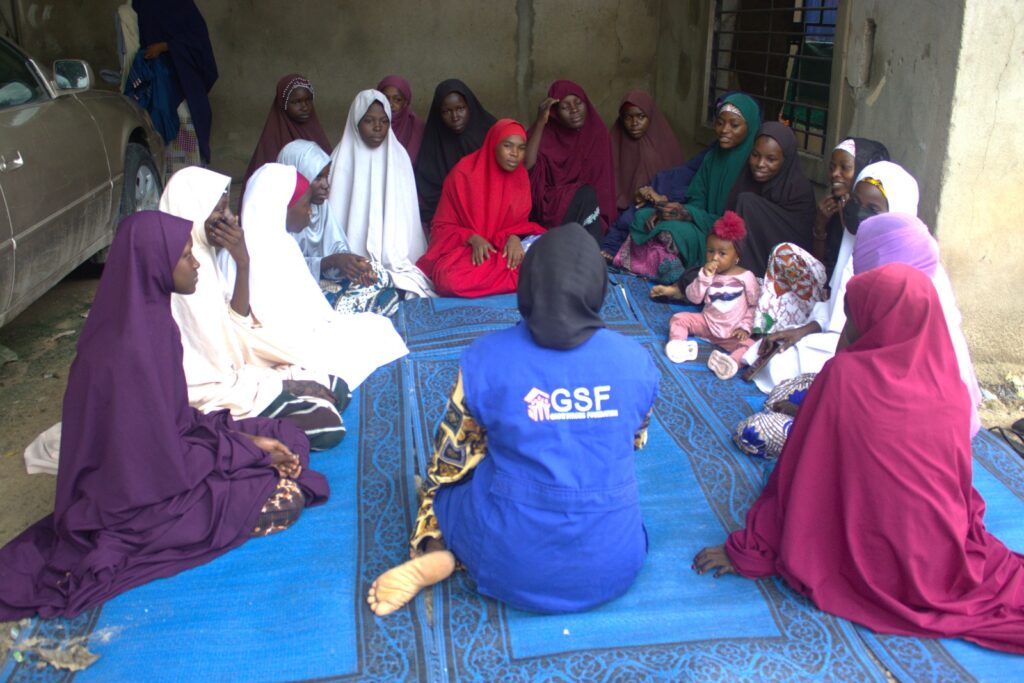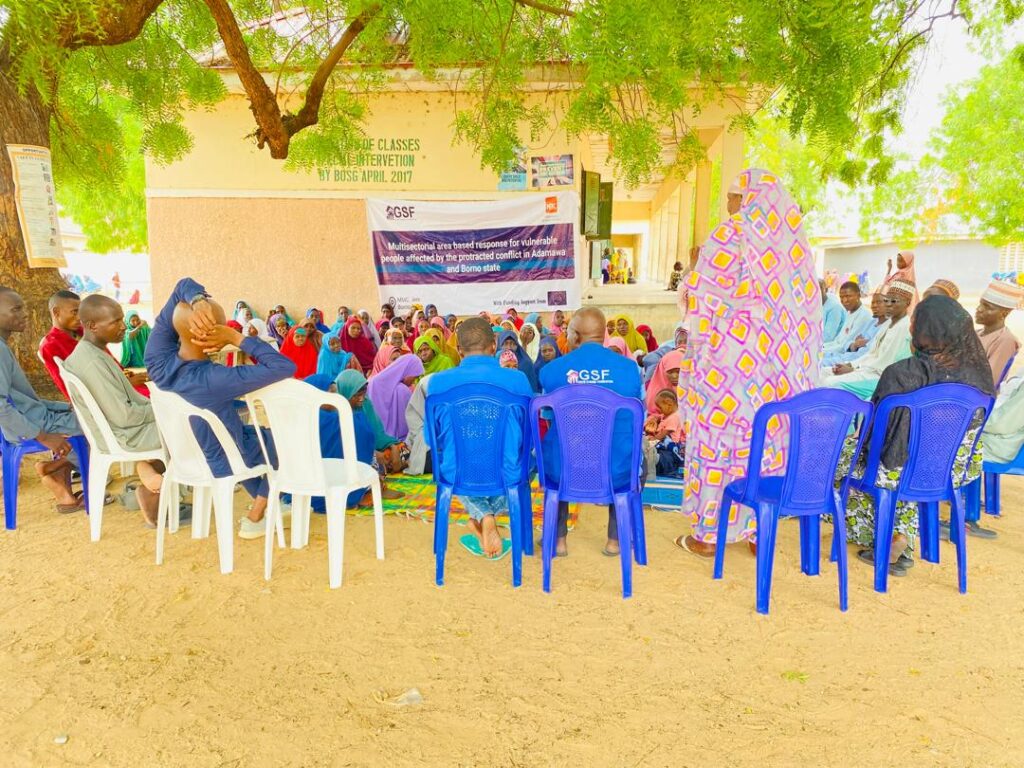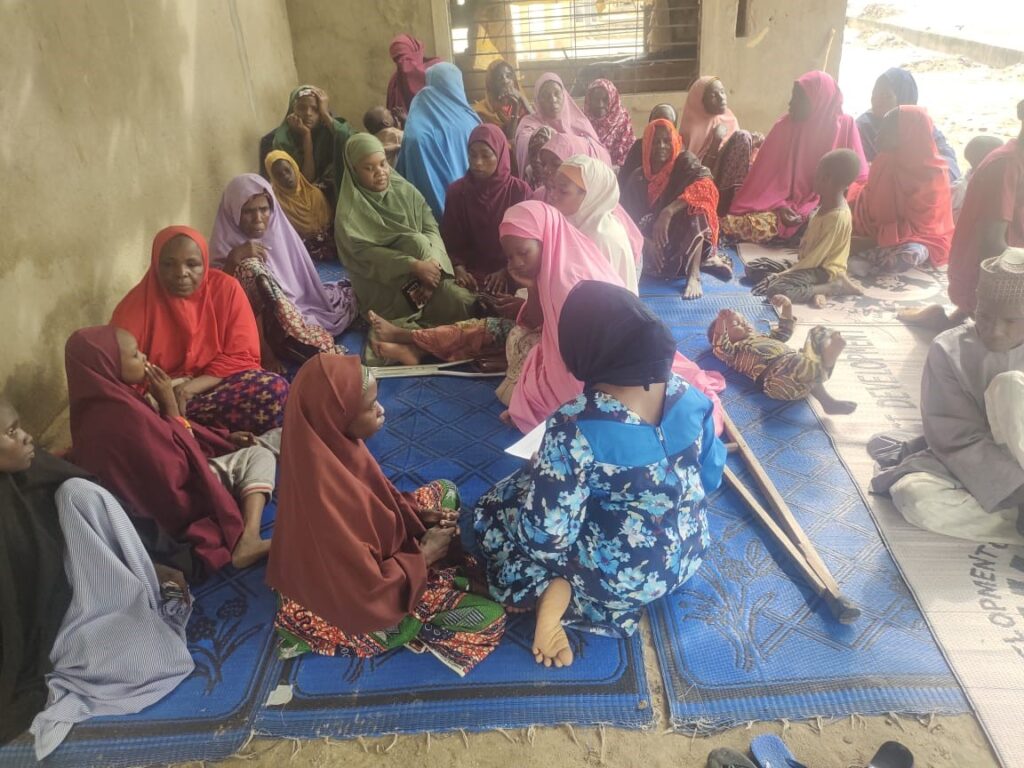Within the conflict-stricken region of Northeast Nigeria, where communities have endured the ravages of insurgency and violence, women have emerged as influential agents of peace and resilience. These women, who are frequently overlooked in formal peace processes, have displayed exceptional fortitude and bravery, playing a pivotal role in the reconstruction of their communities, promoting peace, and nurturing hope in the face of insurmountable adversity.
Women as Pillars of Peacebuilding
In the conflict-affected region of northeast Nigeria, women have disproportionately endured significant hardships, including the loss of homes, loved ones, and economic opportunities. Despite these challenges, they have emerged as vital contributors to peacebuilding efforts. As indicated in a 2022 report by UN Women, women in conflict zones exhibit a 35% higher likelihood of engaging in community-level peacebuilding activities compared to their male counterparts. This phenomenon is particularly evident in Northeast Nigeria, where women’s groups have played a crucial role in mediating disputes, promoting reconciliation, and advocating for peaceful coexistence.

A notable example is the Women’s Peace Network in Borno State, a grassroots organization led by local women who have assumed the responsibility of mediating conflicts between displaced communities and local residents. Through dialogue, education, and advocacy, these women have successfully resolved numerous disputes, fostering a sense of unity and understanding in a region devastated by violence.
Within the context of peacebuilding initiatives, women in Northeast Nigeria have assumed a pivotal role in the reconstruction and invigoration of their communities. In the aftermath of the conflict, these women have harnessed resources, provided solace to vulnerable groups, and spearheaded initiatives aimed at restoring livelihoods and promoting social harmony.
Consider the exemplary narrative of Aisha, a widowed resident of Yobe State, who endured the loss of her husband and two sons as a result of the insurgency. Despite these hardships, Aisha, driven by unwavering determination, embarked on a small-scale entrepreneurial venture, crafting and selling handmade goods to support her surviving children. Furthermore, she extended her benevolence by organizing a collective of fellow widows within her community, impacting upon them the requisite skills to establish their own businesses. Today, this collective of women entrepreneurs has not only secured financial stability for numerous families but has also cultivated a supportive network that fosters resilience and solidarity among its members.

According to the International Organization for Migration (IOM), women like Aisha are indispensable to the recovery process in conflict-affected areas. Data compiled by the IOM reveals that communities where women actively participate in economic recovery efforts exhibit a significantly higher probability of achieving long-term stability, approximately 40% greater than those communities where women’s roles are marginalized.
Education and advocacy have been key tools for women in Northeast Nigeria as they work to build peace and resilience. Many women have taken on the role of educators, not only in formal settings but also through informal networks where they share knowledge on peace, rights, and community health.
For example, Hauwa, a schoolteacher from Adamawa State, has been running peace education workshops for children and young adults in her community. These workshops focus on conflict resolution, human rights, and the importance of peaceful coexistence. Hauwa’s efforts have not only educated the younger generation but have also helped to prevent the spread of radicalization by promoting tolerance and understanding.
Data from the Global Network of Women Peacebuilders (GNWP) shows that peace education programs led by women in conflict zones can reduce the likelihood of youth involvement in violence by up to 50%. Hauwa’s story is a testament to the power of education in building a more peaceful and resilient future for Northeast Nigeria.

The stories of women like Aisha and Hauwa are not isolated incidents; they are representative of a broader movement of women across Northeast Nigeria who are making extraordinary contributions to peace and resilience. These women have shown that even in the darkest of times, courage, compassion, and determination can light the way forward.
Consider the story of Fatima, a young mother from Borno State who was abducted by insurgents but managed to escape with her two children. Upon her return to her village, Fatima became a vocal advocate for the rights of survivors of violence, working with local NGOs like GSF to provide psychological support and reintegration services. Her efforts have helped dozens of women and children rebuild their lives, demonstrating that resilience is not just about surviving but about thriving and helping others to do the same.
Grow Strong Foundation: Empowering Women Through Support and Collaboration
These remarkable women do not stand alone in their efforts. The Grow Strong Foundation, in collaboration with UN OCHA, NRC, UNICEF, and other partners, has been actively supporting women like Aisha, Hauwa, and Fatima through targeted programs aimed at empowering women in peacebuilding and community resilience.
Through our partnership, the Grow Strong Foundation has implemented several projects designed to equip women with the skills, resources, and support they need to lead their communities toward recovery and stability. This includes providing training in conflict resolution, vocational skills, and psychosocial support, as well as creating platforms for women to share their experiences and advocate for their rights.
For example, through strengthening resilience and economic reintegration of children and women exiting armed groups and other vulnerable community children and women, funded by UNICEF in Borno and the Nigerian Humanitarian Fund (NHF) in Adamawa and Yobe, we have supported over 500 women in starting their own businesses, just like Aisha. These women have not only gained financial independence but have also become leaders in their communities, promoting peace and unity through their economic activities. Additionally, our Sport for Peace, supported by UN OCHA, has reached thousands of young people across the region, thanks to the tireless efforts of women like Hauwa. By educating the next generation on the values of peace and tolerance, we are laying the foundation for a more resilient and harmonious society.
In the context of peacebuilding and community resilience in Northeast Nigeria, it is imperative to acknowledge and facilitate the contributions of women. These women are not merely passive recipients of conflict, but rather they are leaders, educators, and advocates who actively shape the destiny of their communities. Their endeavors are pivotal in realizing enduring peace and stability in the region.
However, it is essential to intensify efforts to ensure that women’s voices are amplified and their initiatives are supported. This entails enhancing women’s representation in formal peace processes, providing access to resources and capacity-building opportunities, and advocating for policies that safeguard and empower women in conflict-affected areas.
The narratives of Aisha, Hauwa, Fatima, and countless other women in Northeast Nigeria serve as a testament to the fact that peacebuilding and resilience are not abstract notions, but rather tangible experiences forged through the valor and determination of individuals who refuse to be silenced or marginalized. As we recognize their accomplishments, it is imperative to reaffirm our commitment to stand alongside them on their journey towards a more peaceful and resilient Nigeria.